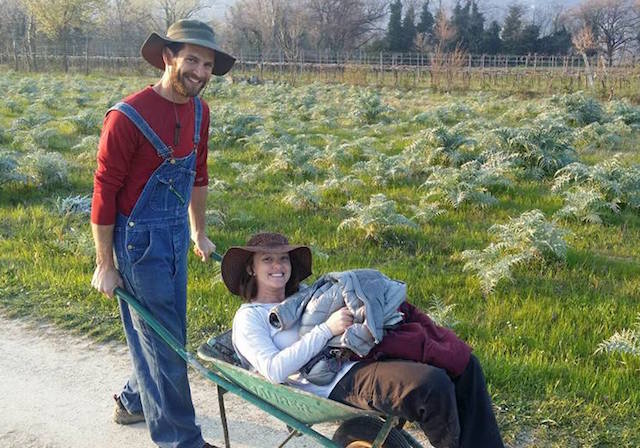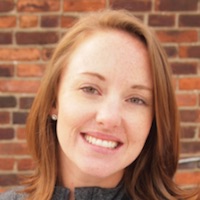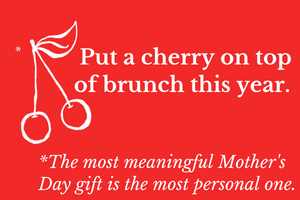Last year, I took a major leap of faith.
I left my stable job and all my belongings to go live and work on a farm in Italy along with my husband and our adventure-loving dog. Five years ago when my husband proposed this idea, I immediately nixed any possibility of it becoming a reality.
I had too many fears, doubts, and ideas about how terrible this would be for me and my career.
For the best part of seven years, I had been working on obtaining my degree and training for a profession in a field that I loved. I had tens of thousands of dollars in student debt and all the enthusiasm of someone green and naïve.
The last thing I wanted to do was abandon it all for a pipe dream. In 2013, when I first traveled to Europe on our honeymoon, I saw the potential and began to embrace the vision.
After doing some research and consulting with our network of friends, we learned of Worldwide Opportunities on Organic Farms (WWOOF), a program that allows people to live on farms throughout the world rent-free in exchange for working on the farm in various capacities. “Woofing” affords travelers the unique opportunity to travel on a budget, needing no more than a plane ticket and a little spending money.
We knew we wanted to go to Italy, a country that we had then traveled to twice and had fallen in love with. We romanticized the idea of making cheese, canning tomatoes, and eating pasta on a daily basis.
We also knew that the physical labor of working on a farm would be much different than the work we were used to. While living abroad, the prospect of traveling easily and more affordably was enticing. In addition to living on the farm for four months, we wanted to spend an additional five weeks traveling Europe.
The logistics began taking shape: my husband and I had a good chunk of savings, the product of working all of those 50 to 60-hour weeks and having little to no social lives. Buying an apartment in New York City was out of reach and retirement planning seemed too far away.
We wanted to invest in something now that would benefit us individually, professionally, and as a couple. It helped that we were not climbing the corporate ladder in our respective careers. Stepping away for a period of time would not hold us back or create a detrimental gap that would be seen as unprofessional.
I knew it was time to make the leap when I was so burnt out I was on the verge of being a “bad” therapist. By that I mean I was not present in my work, not feeling fulfilled in the way I once did, and struggling to find the good in the work that I did. I knew I did not intend to leave the field, but at the same time the lifestyle I was living was unsustainable.
I put in my notice at work and explained to all my clients that yes, despite having a good job and caring about their well-being, I was in need of an adventure and some self-care.
We listed our apartment on AirBnB and prepared for nine different houseguests to covertly stay in our apartment while we were abroad, helping us to break even without an income. We talked about how much money we could realistically spend on travel while we were living in Italy. We made a plan for the realities of substantially draining our savings and not having any means of income over this extended period.
Wanting to expand our travels beyond the farm, we determined what would be realistic for our travel style. We set a budget of about 5,000 dollars for a span of five months. The majority of this we planned to spend during our five weeks of traveling. We aimed for an in-between budget and overall we were happy with the budget we set.
In making all of these preparations, the gigantic risk we were taking settled in, as did the fear.
Things could go wrong, I reminded myself.
We could lose our apartment or have a terrible experience on the farm. We could deplete our savings beyond repair. We could be making a terrible mistake.
Then I realized that life is about taking chances and making big changes with the hope that they will create something spectacular. I allowed myself to be apprehensive, but I challenged myself to not let that fear dictate my life.
We spoke of the realities and the plans that we would make to counterbalance those risks. We reminded ourselves that life is meant to be lived now, not just when we reach the age of retirement. I reminded myself of all the principles that I try to instill in my life and teach my clients.
Before taking my leap of faith, I asked, “What is the worst that can happen?” This is a good starting point and an easy way to check in with our defenses when making any change—big or small.
If the answer is detrimental to our well-being or will have a negative impact on the future, we might wisely choose not to pursue it. If the worst that can happen is that we fall and need to pick ourselves back up, we can remind ourselves that we have likely been there before and can confidently do it again.
I reminded myself to trust my gut and that it is okay to feel anxious. Anxiety is completely normal and acceptable when we are in the midst of a change. Our bodies can have a keen way of communicating whether that anxiety is “good,” as in excitement, or “bad,” as in doubt. If we are attuned to the difference in these feelings, this gut instinct can help guide us to the right decision.
I learned to not let fear decide.
Fear is an emotion that has the power to hold us back from pushing boundaries, exceeding limits, and growing. Maybe the biggest fear in making a big change is making a mistake or receiving judgment from others.
Rather than letting that fear dictate our decision, we can again ask, “What is the worst that can happen?” Having a comprehensive understanding of the potential consequences of our choices can increase confidence in our decisions.
Once I took the leap, lived in Italy and began a path in life that I have never taken before, the challenges did not end. Things went wrong and things were out of our control. I could have easily thrown in the towel and turned back to the life that was comfortable and within my perceived control. I needed to remind myself of some key things to ensure that my journey was being lived to the fullest.
I reminded myself not to think about what might have been. Self-doubt, comparison, and worry take away from enjoying the decisions we have already made. This will not be helpful to our end goal and will likely hold us back from embracing the change fully. We can instead focus on the positives of the decision and feel confident in it.
The biggest lesson I learned was to be present throughout the journey.
We always have the choice to be mindful and in the moment as an alternative to thinking about what is happening next. When taking any leap of faith, be sure to take time to breathe it all in and enjoy the journey.
Author: Leslie Jay
Image: Annie Spratt/Unsplash
Editor: Sara Kärpänen







Read 1 comment and reply